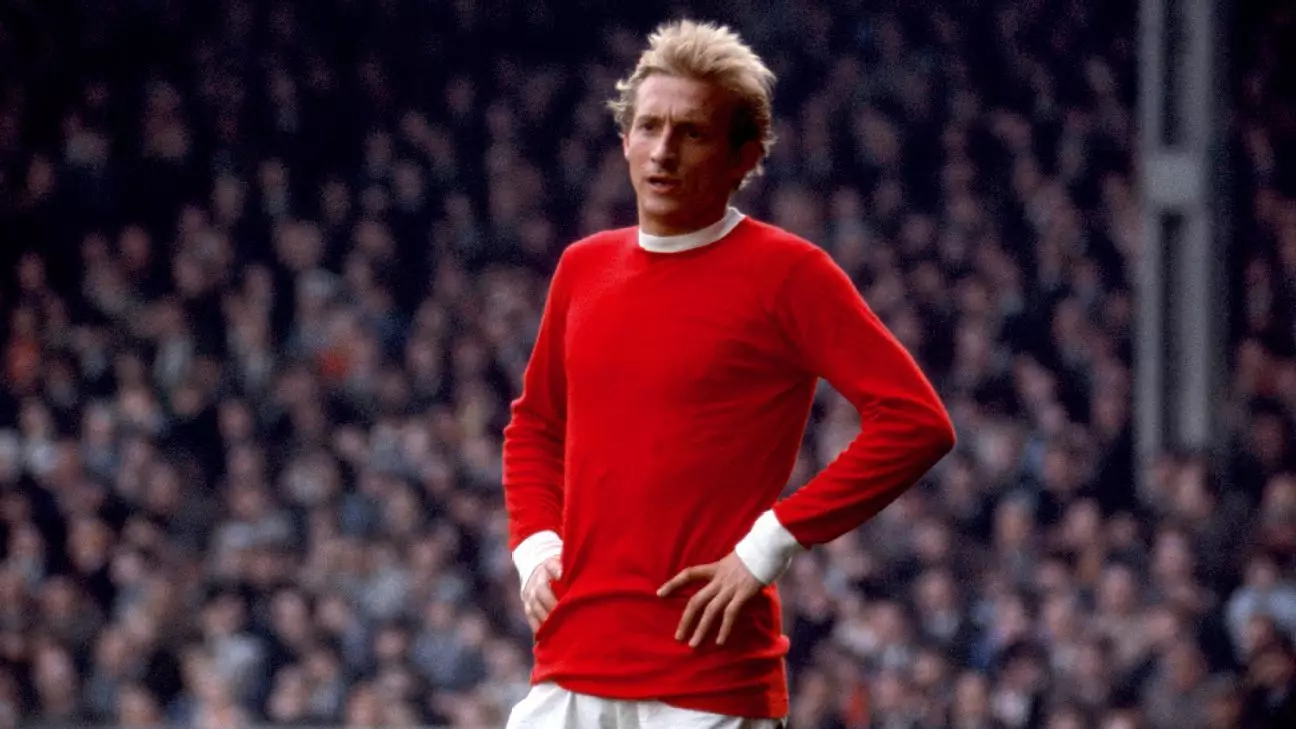The world of football has been shaken by the news of the passing of Denis Law, a titan of the game and a cherished figure in Manchester United’s history, who died at the age of 84. Law’s family announced the news, highlighting the profound impact their father had not only on the pitch but also in life beyond football. Recognized as a member of the revered “United Trinity” alongside Sir Bobby Charlton and George Best, Law’s legacy is immortalized both in the hearts of fans and in the iconic statue outside Old Trafford. The grief felt by his family and fans alike paints a picture of a man beloved and revered, who fought valiantly against dementia until the end.
Denis Law’s journey from a skinny 15-year-old with poor eyesight to a formidable goalscorer is nothing short of inspiring. Born in Aberdeen, Scotland, he began his career at Huddersfield Town, showcasing a remarkable talent that would eventually lead him to become one of the greatest forwards of his generation. His transfer to Manchester United in the early 1960s marked the start of an 11-year period in which he would redefine scoring in English football, amassing 404 appearances and cementing his status as a club legend.
Law thrived in an environment that was gradually rebuilding after the devastating 1958 Munich Air Disaster. Under the stewardship of Sir Matt Busby, Law played a crucial role in reviving a club that had lost most of its star-studded lineup. His prolific goal-scoring ability—evidenced by a staggering 46 goals in one season—made him a crucial component of United’s resurgence during the 1960s, culminating in their historic European Cup victory in 1968.
Scotland’s famed forward leaves behind an extraordinary legacy, highlighted not only by his individual accolades but also by the collective triumphs of Manchester United. His tally of 237 goals places him among the club’s all-time greats, surpassed only by fellow legends Sir Bobby Charlton and Wayne Rooney. However, his exceptional goals-per-game ratio sets him apart, illustrating an efficiency that many strikers can only dream of achieving.
Yet, it wasn’t just club football where Law excelled; he also had an impressive international career, earning 54 caps and finding the back of the net 31 times for Scotland. Perhaps one of his most memorable moments came later in his career when, playing for Manchester City, he scored an infamous back-heel goal against United that sealed their relegation to the Second Division. It was a moment that encapsulated the bittersweet nature of football, as Law, with his head bowed, was both a villain and a legend in the eyes of the United fans.
Football is often a short-lived career, but Law extended his influence beyond his playing days. Upon retiring in 1974, he transitioned into media, becoming a respected pundit and television presenter. His insights and storytelling captured fans’ imaginations, further solidifying his connection with the sport he so passionately loved. Law’s efforts extended beyond entertainment; he battled prostate cancer, showcasing resilience and strength that inspired many. His recognition as a Commander of the British Empire in 2016 for contributions to football and charity underscores the tremendous impact he had both on and off the pitch.
The annals of Manchester United history are filled with names, yet few resonate quite like Denis Law’s. His flair, competitive spirit, and unmatched goal-scoring prowess have not only inspired generations of players but have also set a benchmark for aspiring footballers worldwide. While the news of his passing brings a wave of sadness, it’s essential to celebrate the life he lived; a life that profoundly impacted the beautiful game.
His family’s heartfelt tribute reflects the immense love and support garnered throughout his life, signaling a culmination of decades of adoration from fans and fellow players alike. The outpouring of condolences from Manchester United and the wider football community serves as a testament to Law’s status as one of the game’s greats.
As we bid farewell to Denis Law, his spirit will undoubtedly continue to echo through the halls of football history, inspiring future generations who will aspire to follow in the footsteps of “The Lawman.” His memory is indelibly etched in the tapestry of football, a true embodiment of what it means to be a legend.

